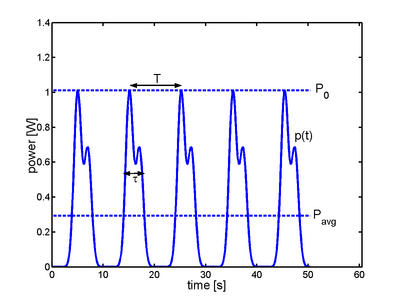| (5 intermediate revisions by one other user not shown) | |||
| Line 1: | Line 1: | ||
| − | = | + | =Periodic versus non-periodic functions ([[Homework_1_ECE301Fall2008mboutin|hw1]], [[ECE301]])= |
| + | <span style="color:green"> Read the instructor's comments [[hw1periodicECE301f08profcomments|here]]. </span> | ||
| − | A function is periodic if and only if there is a Time T > 0 for a function such as x(t)=x(t+T) | + | A function is periodic if and only if there is a Time T > 0 for a function such as: x(t)=x*(t+T) |
| − | [[Image: | + | example: |
| + | [[Image:per_ECE301Fall2008mboutin.png]] | ||
| + | |||
| + | |||
| + | However, | ||
| + | A function is non periodic if there is no such time T > 0 such that: x(t)=x*(t+T) | ||
Latest revision as of 06:22, 14 April 2010
Periodic versus non-periodic functions (hw1, ECE301)
Read the instructor's comments here.
A function is periodic if and only if there is a Time T > 0 for a function such as: x(t)=x*(t+T)
However,
A function is non periodic if there is no such time T > 0 such that: x(t)=x*(t+T)


